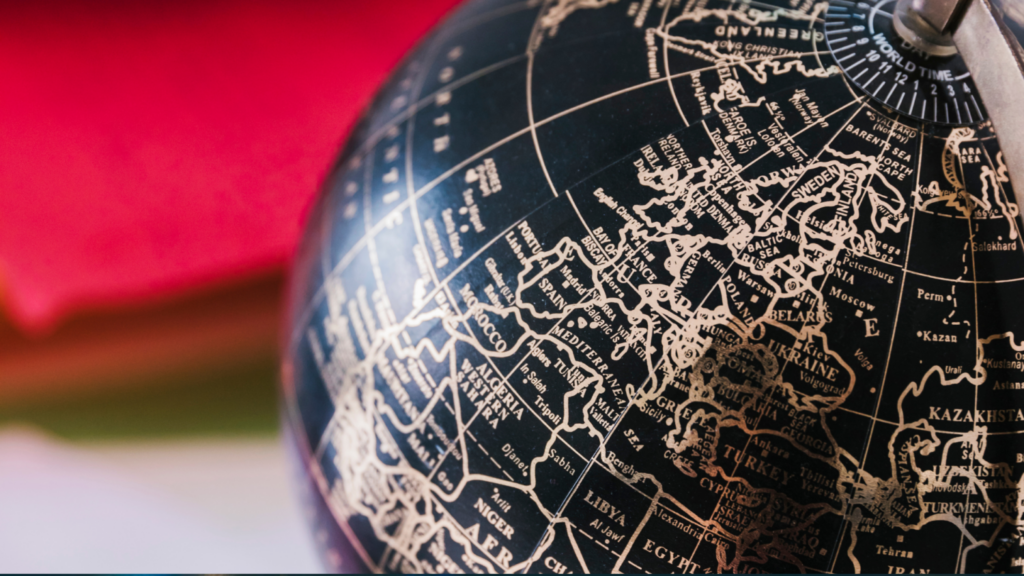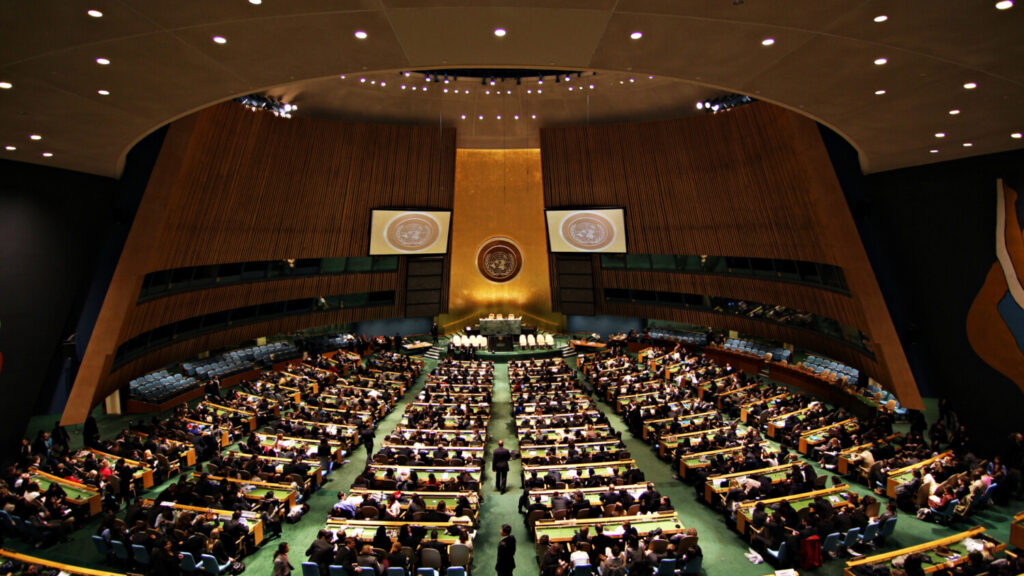Russia’s War Economy: a Growing Global Political Risk
Russia’s transition to a full-scale war economy is reshaping the global political and economic landscape.
Since its invasion of Ukraine in 2022, Russia has undergone a profound economic transformation. Moscow has fully pivoted to a war economy, prioritising military production and strategic survival, over broader economic development. This evolution presents significant and escalating political risks not only for Russia itself but also for global markets, multinational corporations and geopolitical stability.
Shifting to a War Economy
The International Institute for Strategic Studies has found that Moscow’s military expenditure spiked by over 40 per cent to almost $146 billion in the past year – equivalent to 6.7 per cent GDP – and is on track to hit 7.5 per cent GDP in 2025 (Breaking Defense, 2025) which is a staggering figure that underscores the Kremlin’s priorities.
In addition, civilian industries have been systematically retooled to serve military needs, automotive plants now manufacture armoured vehicles and technology firms focus increasingly on military communications and cyberwarfare capabilities (Defense Blog, 2025; Chatham House, 2021).
Russian President, Vladimir Putin, has previously formalised this shift. For example, in December 2024, he approved the 2025 federal budget which prioritises spending on national security and defense (Institute for the Study of War, 2025). Additionally, the state’s ability to expropriate foreign assets without compensation has further isolated Russia from Western capital deepening its reliance on state-directed economic activity.
Global Sanctions
Despite facing one of the most extensive sanctions regimes in modern history, Russia has adeptly developed pathways to bypass the restrictions. Trade with countries like China, India, Turkey and various Central Asian nations has soared, creating a shadow network that supports the Russian war effort. For example, reports indicate that Russia has been utilising a “shadow fleet” of tankers to continue its oil exports, despite Western sanctions, with many of these vessels owned by entities in countries like India and the UAE (AP News, 2025).
This evasion of the sanctions imposed on them has led to a new wave of secondary sanctions, particularly from the US and European Union, targeting firms and individuals in third-party countries who facilitate trade with Russia. For example, the US Department of the Treasury recently sanctioned 275 individuals and entities involved in supplying Russia with advanced technology and equipment, highlighting sanctions evasion networks across 17 jurisdictions, including India, China and Turkey (US Department of the Treasury, 2025c).
As enforcement efforts ramp up, multinational companies face increased compliance risks, even if their operations are geographically removed from Russia. For global firms, this creates an environment of heightened legal uncertainty. Engaging with markets in Turkey, Kazakhstan or the UAE, previously seen as neutral, now carries real reputational and financial risk.
Global Geopolitical Instability
Russia’s war economy has also caused a shift in its international alliances. Relations with Iran and North Korea have strengthened considerably with evidence of arms trading and energy partnerships with both countries (AP News, 2025b; Reuters, 2025b). This emerging informal bloc poses new challenges to Western interests particularly in unstable regions like the Middle East and Sub-Saharan Africa.
The global implications are profound: a better-armed Iran could destabilise the Persian Gulf (AP News, 2025a) while Russian-backed paramilitaries in Africa could undermine fragile governments across the continent (Africa Center, 2025). There is also a greater risk of proxy conflicts emerging which draw in major powers and complicate diplomatic efforts elsewhere.
Moreover, China’s cautious but undeniable support for Russia, particularly in providing dual-use technologies (Chatham House, 2025), further signals an increasingly polarised international system.
Commodities and Energy Market Volatility
But, despite embargoes, Russia remains a major player in global energy markets. Its oil exports have been re-routed, primarily to China and India, often at discounted prices (Reuters, 2025a). Meanwhile, gas supplies to Europe have been replaced by liquefied natural gas (LNG) imports leading to disruptions and price spikes (European Court of Auditors, 2024).
Other sectors, such as agricultural commodities and metals, are also feeling the impact. Russia’s role as a fertiliser and grain exporter means that any new escalations, whether through tighter sanctions or internal unrest, could ripple through global food markets, particularly in vulnerable developing countries (Nature, 2023). In this way, companies dependent on stable commodity prices face a significant new layer of unpredictability driven directly by Russia’s ongoing war footing.
Internal Pressures
Although the Kremlin projects confidence, the internal picture is more precarious, as Russia grapples with a number of issues:
- Labor shortages as hundreds of thousands of young men have either been conscripted or fled abroad.
- A steady growth in inflation particularly in consumer goods.
- Growing regional discontent particularly in poorer and ethnically diverse regions far from Moscow. (Le Monde Diplomatique, 2025; Trading Economic, 2025; The Moscow Times, 2025)
There is a risk that these pressures could lead to elite fragmentation, regional unrest or even a sudden leadership crisis. While the Putin regime has so far maintained a tight grip over the country, history suggests that brittle authoritarian systems can unravel rapidly when exposed to sustained internal stress. Such a scenario, though not yet probable, would have profound implications for global energy markets, European security and the international sanctions regime.
Russia’s transition to a full-scale war economy is not simply a domestic phenomenon, it is reshaping the global political and economic landscape. In the long run, understanding and preparing for the consequences of Russia’s war economy will be a crucial part of any serious political risk assessment in 2025 and beyond.
Bibliography
Africa Center. (2025). “Russia in Africa”. Africa Center. Accessed 24th April, 2025. Available at: Russia in Africa– Africa Center for Strategic Studies
AP News. (2025a). “China, Iran and Russia hold joint naval drills in Mideast as tensions rise between Tehran and US”. AP News. Published 12th March, 2025. Available at: China, Iran and Russia hold joint Mideast naval drills | AP News
AP News. (2025b). “Putin thanks North Korea for troop deployment and promises not to forget their sacrifices”. AP News. Published 28th April, 2025. Available at: Putin thanks North Korea for troop deployment and promises not to forget their sacrifices | AP News
AP News. (2025c). “Shadow fleet of tankers keeps Russia’s oil money flowing despite Western sanctions”. AP News. Published 14th January, 2025. Available at: Shadow fleet of tankers keeps Russia’s oil money flowing despite Western sanctions | AP News
Breaking Defense. (2025). “Russia overtakes all of Europe on defense spending in key metric: IISS military balance”. Breaking Defense. Published 12th February, 2025. Available at: Russia overtakes all of Europe on defense spending in key metric: IISS military balance – Breaking Defense
Chatham House. (2021). “Advanced military technology in Russia”. Chatham House. Published 23rd September, 2021. Available at: Advanced military technology in Russia | 06 Military applications of artificial intelligence: the Russian approach
Chatham House. (2025). “03 Russia stakes global ambitions on regional dominance”. Competing visions of international order. Chatham House. Last updated 27th March, 2025. Available at: Competing visions of international order | 03 Russia stakes global ambitions on regional dominance
European Court of Auditors. (2024). “Special report 09/2024: Security of the supply of gas in the EU – EU’s framework helped member states respond to the crisis but impact of some crisis‑response measures cannot be demonstrated”. European Court of Auditors. Published 24th June, 2024. Available at: Special report 09/2024: Security of the supply of gas in the EU | European Court of Auditors
Forbes. (2025). “A Lot More Russian Troops Are Attacking In Compact Cars, Vans And Golf Carts”. Forbes. Published 24th March, 2025. Available at: More Russian Troops Are Attacking In Compact Cars, Vans & Golf Carts
Institute for the Study of War. (2025). “Russian Offensive Campaign Assessment”. Institute for the Study of War. Published 1st April, 2025. Available at: Russian Offensive Campaign Assessment, April 1, 2025 | Institute for the Study of War
Le Monde Diplomatique. (2025). “Russia struggles to fill jobs”. Le Monde Diplomatique. Published February, 2025. Available at: Russia struggles to fill jobs, by Alexey Sakhnin & Liza Smirmova (Le Monde diplomatique – English edition, February 2025)
Reuters. (2025a). “India boosts buying of Russia’s ESPO oil in April as Chinese demand eases”. Reuters. Published 28th April, 2025. Available at: India boosts buying of Russia’s ESPO oil in April as Chinese demand eases | Reuters
Reuters. (2025b). “Iran, Russia agree on 55 bcm of gas supplies, nuclear plant funding”. Reuters. Published 25th April, 2025. Available at: Iran, Russia agree on 55 bcm of gas supplies, nuclear plant funding | Reuters
The Moscow Times. (2025). “Looking Ahead at Russia’s Ethnic Republics in 2025”. The Moscow Times. Published 7th January, 2025. Available at: Looking Ahead at Russia’s Ethnic Republics in 2025 – The Moscow Times
Trading Economics. (2025). “Russia Inflation Rate”. Trading Economics. Accessed 26th April, 2025. Available at: Russia Inflation Rate
U.S. Department of the Treasury. (2024). “Treasury Takes Aim at Third-Country Sanctions Evaders and Russian Producers Supporting Russia’s Military Industrial Base”. U.S. Department of the Treasury. Published 30th October, 2024. Available at: Treasury Takes Aim at Third-Country Sanctions Evaders and Russian Producers Supporting Russia’s Military Industrial Base | U.S. Department of the Treasury
Zhang, Z., Abdullah, M, J., Xu, G., Matsubae, K., and Zeng, X. (2023). “Countries’ vulnerability to food supply disruptions caused by the Russia–Ukraine war from a trade dependency perspective”. Nature. Published 3rd October, 2023. Available at: Countries’ vulnerability to food supply disruptions caused by the Russia–Ukraine war from a trade dependency perspective | Scientific Reports



